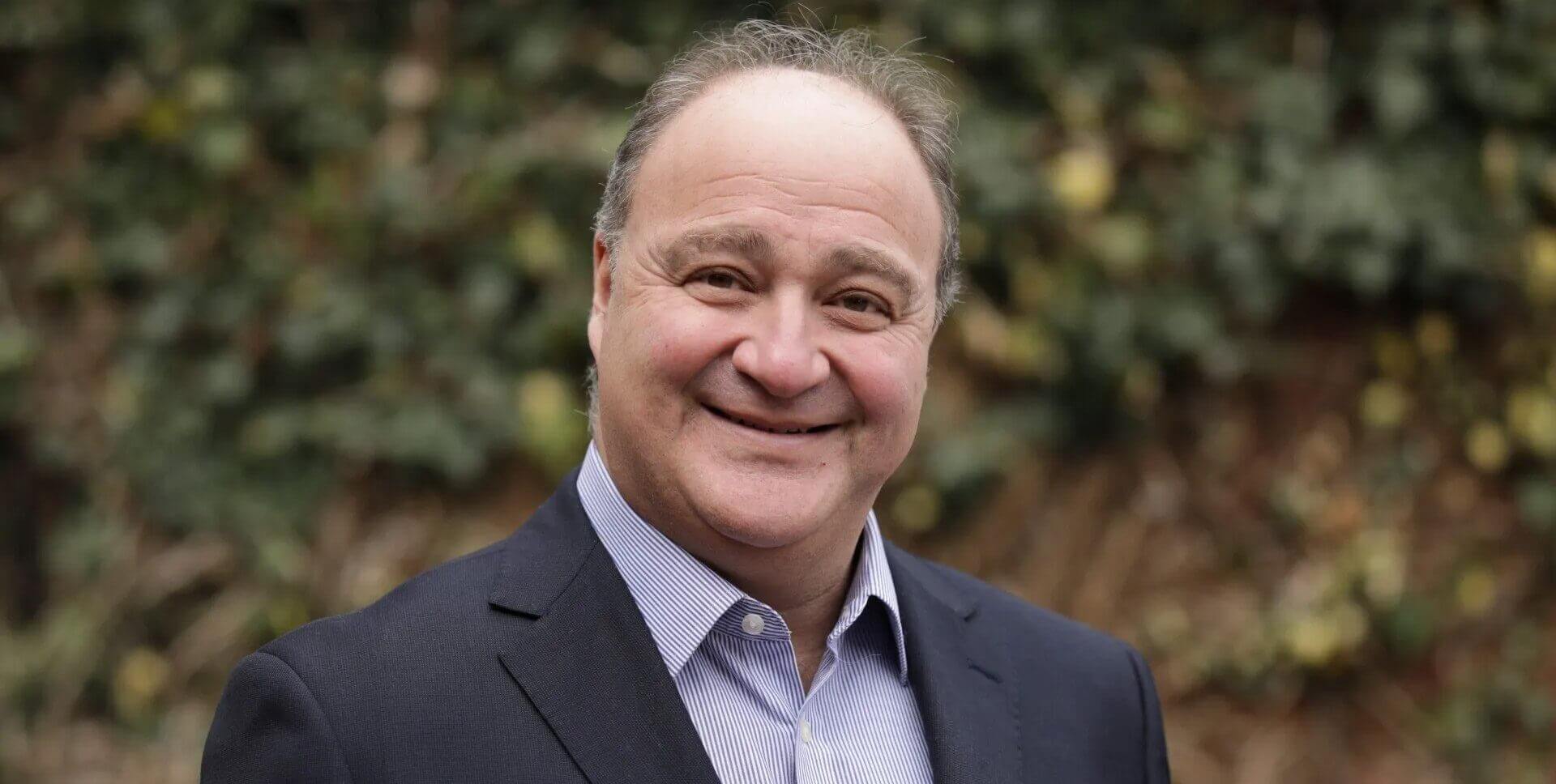Apprenticeship Week 2025 – a personal view from Josh Marodeen
When you think of apprenticeships, the sort of thing that usually springs to mind is trade skills like plumbing, electrical technician, or engineering. But today,…
Read More

Speaking to Dennis Flower of the FM Director publication, just as the UK government announced its intentions to reduce expenditure and prepare for the perceived economic downturn, Q3 chief executive officer Martyn Freeman considers the effect this will have on the FM sector.
“Looking back at other periods like this shows that outsourcing providers usually do well during times of recession. That’s because clients tend to outsource more to cut costs during difficult times, so we don’t see any major difficulties if the recession that everyone is talking about actually happens.”
With rising costs and interest rates impacting companies and individuals in all areas, he recalls the difficulties faced in the 1980s, when interest rates peaked at 17%, to make the point that there are numerous examples of how the UK economy has been impacted and overcome similar challenges. “We’ll just have to see how long and how deep the latest recession goes, but I’m always buoyant because we always see opportunities, regardless of whether it’s boom, bust or somewhere in between.”
One of the issues that will need to be addressed, he continues, is that of the level of risk that contractors are required to accept. He provides the example of negotiations for contracts starting in the near future and the level of inflation these should include. “If you’re signing up to supply services over the course of five years, should you include 10% inflation, or go for 5% and hope that the price rises we’re seeing at the moment fall back and you don’t end up losing out?” he asks.
The conversation moves to discuss the current position of Q3 Services, which Mr Freeman and his senior team launched just over five years ago. He describes the unique challenges that need to be overcome when starting a new business, particularly when the founders are used to working for large businesses with high levels of supportive resources.
Having seen the business become firmly established and grow to the point it has acquired other companies to add more fuel to its expansion, he states that this has enabled the company to take on increasingly more contracts of wider scope.
“Q3 is doing well and we’re seeing more of our work following the IFM route as part of our evolution. We’ve been able to take on larger contracts and this has also led to more large contracts as we’ve worked our way up the food chain and we’ve made sure that our growth has always been sustainable.
“We’ve been careful to work with the clients that understand the benefits of paying the Living Wage and the value of sustainable margins, which means we can continue to look after our customers and our people.
“We’re still a private company and that makes us very attractive to clients for various reasons. And the best thing about working for larger organisations in the past is that you can take the best things and run with these to avoid some of the other aspects that can be counter productive,” he continues.
“We’ve always focused on getting the balance right and establishing the right structure for the company, looking after clients and making sure we had all the basic things in place to keep the business expanding. But then you need to get more serious and look at the more important areas of business development by working with the best advisors and the most motivational people.
“This has seen us progress from being a service provider in the early years to being regarded more as a valued service partner by clients and industry partners,” he says.
One of the results of becoming “more serious” has been the holding of the company’s first future strategy meeting with its senior management team, providing more fuel for thought on the best way to move further forward. One of the options being considered is that of transitioning the business to become a social enterprise.
“The Q3 senior management team meets every two weeks and initially this included six people, but I counted 40 of us on our most recent call, which shows how much we’ve grown in five years. We have a responsibility to look after all our staff and our clients and it’s also important that we have the right look and feel for the business and make sure we help customers to deliver their property management strategies.”
He further states that companies have aligned themselves with the various trends that range from net zero carbon emissions to environmental and social governance (ESG) to the point where there are now fewer key differentiators. Having aligned Q3 with social values from the company’s launch, Mr Freeman now sees this as becoming even more central to its future development.
“Having started as a boutique company and offering specialist services, we’re now looking at the bigger picture to ensure we retain our core values and build further on them with the aim of making them even more meaningful,” he continues. “This may include more investment in our people to help them achieve more in their careers.
“It’s no longer enough to just pay the Living Wage, which we’ve done for a few years now, you have to support them with things like the increased cost of living. Adopting more social values will help us to give back, which could see us donate a percentage of our profits to charity in the future, but we’re still on a social enterprise learning curve.”
With both the National Living Wage and Real Living Wage rates set to increase by around 10% in 2023, he states that this will be a “big shock to some clients”, particularly those still suffering the effects of the pandemic and other issues. “But in the end it’s a matter of engaging with clients and finding the best way to proceed, which may result in finding improved methods of service delivery.”
This should also include more transparency at the tender stage of contracts, combined with increased engagement with those in the bidding process, he continues. That will allow both sides to ensure that they work together in the most effective manner from the start of the relationship, rather than having to do this at a later stage and increasing the likelihood of mistakes and misunderstandings.
Expanding further on this topic, he explains that the pandemic has seen significant changes in building occupancy for both the public and private sectors, which provides opportunities for clients to work with service providers and adapt where necessary. An example of this could be the seasonal changes in offices that see occupancy levels increase and decline at specific times of the year, allowing services to be reduced during the lowest attendance periods.
“The best approach is to engage with clients as early as possible and plan in advance for new developments, such as the increased Living Wage rate. But at least the service industry is better than the utilities sector, where you just get a letter telling you how much more you’ll have to pay. We’re much better at discussing and mitigating issues and working with clients to find solutions that work for everyone.”
Continuing the discussion on payment of the Real Living Wage and the inclusion of other initiatives, Mr Freeman states that it is important not to “hide behind the badge” and continue to develop each business in ways that will benefit staff members, clients, facilities users and society in general. In many ways improved payment levels for staff is an excellent place to begin the journey, but it is then important to realise this can be built on and improved.
Everyone needs to play their part in this, he continues, and that requires effort and appreciation from service providers, clients, the government and industry bodies to encourage all those involved to have “more human conversations” in both the private and public sector.
“It shouldn’t just a be box ticking exercise and we all need to appreciate that we have to focus on providing genuine social and environmental policies, including paying the Living Wage and promoting this to everyone so they understand the needs and the benefits of paying it,” he says.
There has been a notable increase in FM mergers and acquisitions (M&A) since the easing of pandemic restrictions and Mr Freeman states that this is likely to see Q3 announcing further deals as part of its future growth. He states that the industry continues to benefit from having a large number of smaller companies that continue to work to high standards, several of which will provide attractive options for M&A deals with larger companies in the near future.
One of the regular areas of discussion for the FM sector is client attitudes toward outsourced services, which can be seen to have waxed and waned in previous decades. He states that there has been a notable return to the use of in-house services in the social housing sector, which may spread further to the residential FM market.
“We work in a very cyclical industry but we’re always seeing new companies enter the FM sector, although it’s become more professional in recent years and isn’t as easy to enter as it used to be. There’s now much more legislation and accreditation required and we know from our own experience that there’s less financial support available for new service provider businesses,” Mr Freeman concludes.
His continuing enthusiasm for Q3 and its growth provides further confirmation of the strength and depth of the FM sector, which has proved highly capable of adjusting and adapting to all the challenges faced in the past and particularly those associated with the Coronavirus pandemic.
Here are some more news and opinion articles that may be of interest:








